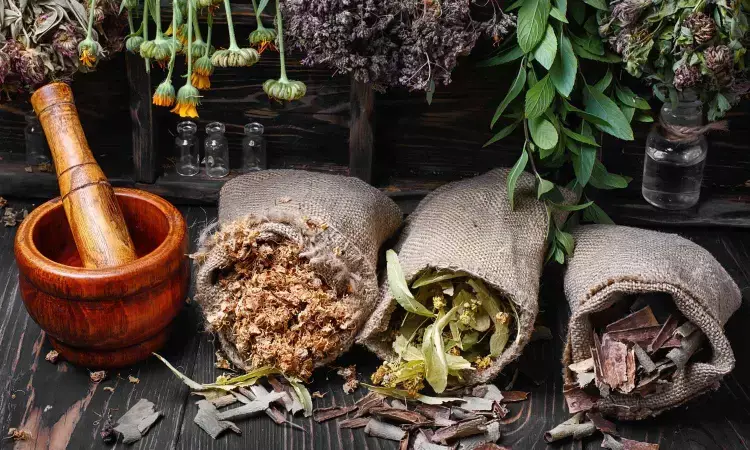- Home
- Medical news & Guidelines
- Anesthesiology
- Cardiology and CTVS
- Critical Care
- Dentistry
- Dermatology
- Diabetes and Endocrinology
- ENT
- Gastroenterology
- Medicine
- Nephrology
- Neurology
- Obstretics-Gynaecology
- Oncology
- Ophthalmology
- Orthopaedics
- Pediatrics-Neonatology
- Psychiatry
- Pulmonology
- Radiology
- Surgery
- Urology
- Laboratory Medicine
- Diet
- Nursing
- Paramedical
- Physiotherapy
- Health news
- Fact Check
- Bone Health Fact Check
- Brain Health Fact Check
- Cancer Related Fact Check
- Child Care Fact Check
- Dental and oral health fact check
- Diabetes and metabolic health fact check
- Diet and Nutrition Fact Check
- Eye and ENT Care Fact Check
- Fitness fact check
- Gut health fact check
- Heart health fact check
- Kidney health fact check
- Medical education fact check
- Men's health fact check
- Respiratory fact check
- Skin and hair care fact check
- Vaccine and Immunization fact check
- Women's health fact check
- AYUSH
- State News
- Andaman and Nicobar Islands
- Andhra Pradesh
- Arunachal Pradesh
- Assam
- Bihar
- Chandigarh
- Chattisgarh
- Dadra and Nagar Haveli
- Daman and Diu
- Delhi
- Goa
- Gujarat
- Haryana
- Himachal Pradesh
- Jammu & Kashmir
- Jharkhand
- Karnataka
- Kerala
- Ladakh
- Lakshadweep
- Madhya Pradesh
- Maharashtra
- Manipur
- Meghalaya
- Mizoram
- Nagaland
- Odisha
- Puducherry
- Punjab
- Rajasthan
- Sikkim
- Tamil Nadu
- Telangana
- Tripura
- Uttar Pradesh
- Uttrakhand
- West Bengal
- Medical Education
- Industry
Traditional medicinal plant holds potential to combat drug-resistant malaria

Canada: A team of researchers have identified compounds in the leaves of a particular medicinal Labrador tea plant used throughout the First Nations of Nunavik, Canada, and demonstrated that one has activity against the parasite responsible for malaria. The researchers reported their findings in ACS Omega.
“Labrador tea” refers to multiple, closely related plants-all members of the genus Rhododendron. As their name suggests, these are small, evergreen shrubs with fuzzy leaves that are steeped to make herbal teas commonly used by the Inuit and Indigenous nations in the U.S. and Canada. Reportedly, drinks made from the leaves or roots can aid in treating colds or the flu, headaches or stomach aches, nasal congestion and many other ailments. Past studies have shown that essential oils extracted from the plants have antimicrobial properties, which could help fight antibiotic-resistant microbes. Dwarf Labrador tea, or Rhododendron subarcticum, produces a particularly aromatic brew and grows in the harsher conditions of the subarctic, found from Alaska to Siberia just south of the Arctic Circle. Despite its common use as a traditional medicine, its chemical composition and potential antimicrobial applications remain relatively unstudied. So, Normand Voyer and colleagues wanted to characterize the makeup of R. subarcticum for the first time and test its antiparasitic activity.
The team gathered R. subarcticum leaves from Nunavik, a region in northern Quebec. The researchers extracted the essential oil from the leaves and analyzed it with gas chromatography, mass spectrometry and flame ionization detection, to identify 53 compounds. It turns out that 64.7% of the oil comprised ascaridole, followed by p-cymene at 21.1%. This combination of compounds has not previously been reported in closely related North American Labrador tea varieties, though it has been found in subspecies originating in Europe and Asia.
To see whether this essential oil had antimalarial properties, the team exposed two strains of Plasmodium falciparum, a malaria-causing parasite, to the oil or to just ascaridole. In the experiment, one of the strains was resistant to known antimalaria drugs. The data showed that ascaridole was the primarily component that acted against both strains of the parasite, which is consistent with other, antiparasitic traditional medicines also rich in the compound. The researchers say that this work bolsters the importance of investigating and protecting plants used in traditional medicines, especially those from harsher climates impacted by climate change.
Reference:
Jean-Christophe Séguin, Dominic Gagnon, Sarah Bélanger, Dave Richard, Xavier Fernandez, Stéphane Boudreau, and Normand Voyer, ACS Omega, DOI: 10.1021/acsomega.3c00235.
Dr Kamal Kant Kohli-MBBS, DTCD- a chest specialist with more than 30 years of practice and a flair for writing clinical articles, Dr Kamal Kant Kohli joined Medical Dialogues as a Chief Editor of Medical News. Besides writing articles, as an editor, he proofreads and verifies all the medical content published on Medical Dialogues including those coming from journals, studies,medical conferences,guidelines etc. Email: drkohli@medicaldialogues.in. Contact no. 011-43720751


